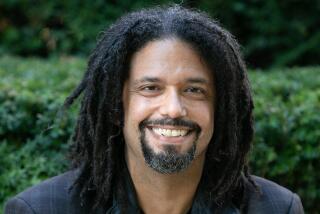British Now on Their Best Behavior
- Share via
LONDON — Among the most absurdly durable reputations would be that of English soccer fans as brawling menaces and English soccer stadiums as sporadically unsafe domains.
That image just won’t croak, even two decades since infamous violence peaked and then declined in a barrage of anti-hooliganism measures that’d make a civil libertarian blush.
Even today, it’s still possible in party conversation to hear someone say something like, “Wow, they’re really dangerous there, aren’t they?,” or, “You go to those stadiums?” Granted, that’s usually in America, warded off by two oceans, obsessed with “American Idol” and oblivious to most global knowledge, but still....
Luckily, reputation might undergo renovation, from Germany’s World Cup.
Domestically, England took the hammer to the image starting in the Thatcher years. It made its stadiums all-seat. It installed closed-circuit cameras, so anything you do, you do on camera, not completely unlike Paris Hilton’s life. It makes you finish your beer in the concession area, which is very cruel but ultimately reasonable.
It segregates opposing fans, a troubling concept at first but actually a blessing as it galvanizes stadium noise and spares you the kind of lame retorts and rejoinders one suffers in, say, a Yankees-Red Sox upper deck. If you’re an American wandering by, it doesn’t let you buy an available ticket to an intracity hate-fest such as Aston Villa versus Birmingham, unless you have a ticket-buying history.
With arrest totals having plunged across 20 years, England has ousted hooligans from domestic stadiums to untold places where they must arrange brawls by mobile phone, surely a technological challenge.
Internationally, another front. English violence abroad -- and the tragedies still feeding the dogged reputation -- prompted a five-year ban from European competition in the late 1980s. It flared in Italy in 1990, France in 1998 and Belgium in 2000, the Belgians hauling 900 English into military airplanes and dropping them back in England without doling out a single frequent-flier mile.
England fetched the hammer again, wrote new legislation and began requiring something unprecedented of its citizens with any record for brawling or worse. Before foreign events involving England’s national team, these sorts must turn in their passports at their local police stations. If they don’t, and attempt travel, authorities intercept them at the airport.
For Euro 2004 in Portugal, a 40,000-strong horde of English turned up, replete with more women and older fans than ever, and, whoa, nothing much happened.
But Germany 2006, with the discount airlines lined up to fly in a teeming English influx and a host that opposed England in a few, you know, wars, now, that could be a different animal. So it’s a 21st-century coup that in language that somehow seems beautifully surreal, German police in game sites in Frankfurt and Nuremberg have lavished praise upon the 65,000 English in the former and the 60,000 in the latter.
They’ve invited them back.
And their words have spawned this most fabulous of puckish tabloid headlines, from the Sun:
“Love Is In The Herr”
More to Read
Go beyond the scoreboard
Get the latest on L.A.'s teams in the daily Sports Report newsletter.
You may occasionally receive promotional content from the Los Angeles Times.






